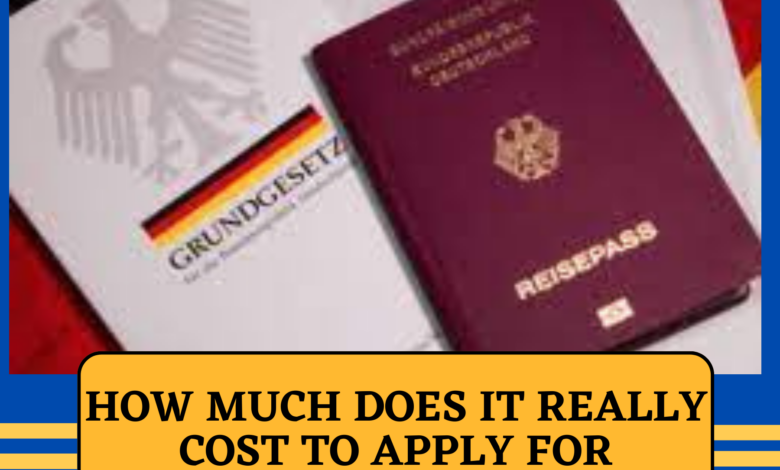How much does it really cost to apply for German citizenship?

How much does it really cost to apply for German citizenship?
Applying for German citizenship is an important step for many individuals who have established their lives in the country. While most people anticipate certain fees, there are often hidden costs that can catch applicants by surprise. To help you better prepare for the financial aspect of your citizenship application, we’ve broken down the expenses involved and provided insights into managing them effectively. And in this blog post, we will have a complete understanding about how much does it really cost to apply for German Citizenship.
Understanding the Application Process
After years of residing in Germany, adapting to the language, and integrating into the culture, the desire to become a German citizen may arise. However, the process of naturalization, which entails submitting various documents and interacting with the local Naturalization Office (Einbürgerungsbehörde), comes with its share of paperwork and expenses. These expenses go beyond the initial application fee and encompass aspects such as translation services, language tests, and tax consultation.
Breaking Down the Costs
1) Application Fee: €255 (+€51 per child)
The universal application fee of €255 is applicable to all applicants, regardless of their location within Germany. If applying for children simultaneously, an extra €51 is required for each child. This fee must be paid upon submitting your application.
2) Official Birth Certificate Translation: €40-€100
A certified translation of your birth certificate is usually mandatory. Costs can vary depending on the translator, but expect quotes between €60-80 on average.
3) Official Marriage Certificate Translation: €30-50
If you’re married, an official marriage certificate may be needed, translated by a certified translator. Costs range between €30 and €50 on average.
4) Citizenship Test: €25
Successfully passing the German citizenship test is crucial. Registering for the test generally costs around €25 at the Volkshochschule.
5) Language Tests: €100-300
Depending on your residency duration, you’ll need to prove either B1 or B2 German proficiency. Budget around €200 for the test, usually subsidized at local Volkshochschule centers.
6) Accountant’s Income Confirmation: €150-300
Freelancers needing to verify their average monthly income may require the services of a tax consultant, usually charging around €100-150 per hour.
7) Land Registry Excerpt: €10-20
Homeowners may need to provide a Grundbuchauszug (land registry excerpt) to verify property ownership. The cost typically ranges between €10 and €20.
8) Passport Photos: €12-15
Recent passport photos are essential, costing approximately €12-15 for a set of four.
9) Postal Costs: €5
Submitting paper documents by post often requires tracked delivery, available through DHL for around €5.49.
10) Renouncing Your Citizenship: €100-2,350
If you need to renounce your current citizenship, costs vary widely depending on your home country’s regulations. Germany’s upcoming nationality law could impact this process in 2024.
11) Legal Fees (Optional): €650+
Some applicants choose to hire a lawyer for assistance, adding to the expenses. Depending on complexity, costs could exceed €650.
12) Other Potential Costs
Various additional expenses may arise, such as travel expenses for in-person requirements or renewing outdated documents.
Minimizing Costs and Planning Ahead
To avoid financial surprises during your citizenship application process, meticulous planning is essential. Seek out competitive quotes for services, consider alternatives, and explore options for subsidization. While the journey to becoming a German citizen involves financial investment, the fulfillment of holding that coveted passport makes the effort worthwhile.
In conclusion, the path to obtaining German citizenship involves not only a personal and cultural journey but also financial considerations. From application fees to language tests and translation services, these costs can accumulate. By understanding and preparing for these expenses, applicants can navigate the process with confidence and ensure a smoother transition to becoming a new German citizen. Remember, while the financial aspect is important, the ultimate reward of gaining German citizenship and the opportunities it brings make the investment well worthwhile.
Read more at How To Abroad:
German Citizenship for Foreigners: Everything you Need to Know
Germany’s new dual citizenship law will soon be implemented
Want to study in Germany? How To Abroad can help you achieve your academic dreams.

